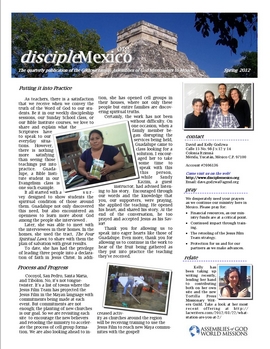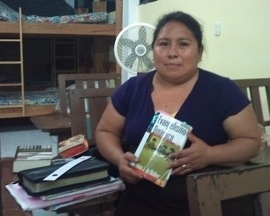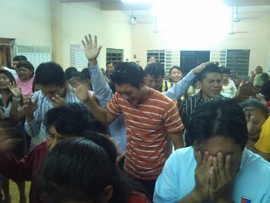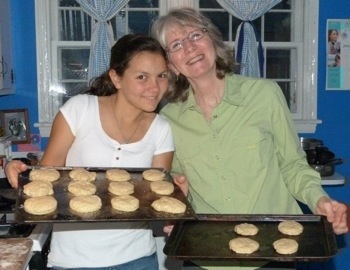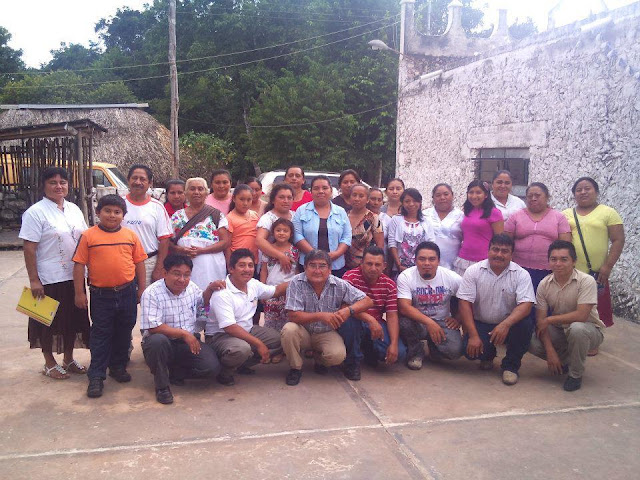Since we arrived for our second term here in the Yucatán in November of 2010, one of our emphases has been to see the gospel spread through the indigenous Maya culture. In the course of our work, we’ve taken several trips, met and worked with lots of individuals, and undertaken projects ranging from public events to church building. Through it all, we’ve realized it’s anything but “business as usual.” Here’s what we’ve learned so far:
1. We all have “boxes.”

Boxes are great tools, and as missionaries, we’ve come to have a special appreciation of them. They not only help us in our moves, but they retain their usefulness throughout our stay. Cultures, as well, are known to have their own “boxes”–ways of thinking and acting that are particular to a people or society, and, while there are certain conveniences that come from working out of these boxes, we rapidly see the liabilities of these beloved tools in a cross-cultural setting:
- While they give us a place to store our “stuff,” they limit the amount of knowledge that we are open to receiving.
- While they help us with categorization of our our experiences and perceptions, they also restrict us, causing problems when what we experience doesn’t fit with one of our preconceived categories.
- While they aid us with the ability to recall past information in order to deal with a present situation, they also may lead us to stereotyping, especially when we have only a cursory knowledge of foreign customs or attitudes.
They scarier reality is that, although we have been trained to recognize the danger of utilizing our American-style boxes when engaging with Mexican culture, many Mexican nationals who desire to partner with us lack the training to realize that they too must recognize and overcome the temptation to operate exclusively from within their particular set of cultural norms.
While we had made certain assumptions in our partnership fellow ministers, we have found that the reality can often be quite different. For example, we had assumed that one’s proximity to the Maya culture would produce vision for ministry to that culture, However, we found that, at least with one worker who spoke the language and pastored among the people, this was not the case. His participation floundered soon after our first ministry trip. We had also thought that shared identity would equal experience, but found that even fellow “Yucatecos” can be at a loss when reaching out to the Maya culture of which they are descendants.

What we have experienced quite often are more in line with the idea that familiarity breeds contempt. In other words, that which is near at hand is seldom appreciated. Here in the Yucatán, many consider the Maya culture to be backward, outmoded. The language is not being passed on from one generation to the next as children have more interest in consuming what is produced in the global market than conserving their own heritage. With this in mind, there is an expectation for the indigenous to “move along” with the rest of society, limiting the number of those who would “reach back” in order to minister to these groups.
Also, we have found that the ministry that is being done often has a view to realize activities while it tends to sacrifice analysis. Many are quick to hold a campaign, but few succeed at the process of discipleship that is required before, during, and after the event. Events are planned out in minute detail, but rarely is the question asked, “Is this event appropriate for this community?”
So how do we do ministry among the indigenous, while encouraging our national brethren to join with us in the effort? That question leads us the the second lesson learned:
2. Our focus must be on understanding before we seek results.
The obstacles that we face are large. At times we aren’t understood, either by our ministry partners or the people to whom we are trying to minister. Conflicts come with partners over ministry approach, style, and content, while language barriers and culture disconnects often thwart our attempts to reach out to the indigenous in relevant, meaningful ways.

Nevertheless, we must believe that we can overcome these obstacles and work hard to do so. Among our partners, this must be done through vision-casting and mission-building. We must help them to see the big picture and get on board. Our goal is not that they become like us, but that they receive Christ into their own culture that He might transform them from the inside out.
In Romans 3:29, Paul asks the question, “Or is God the God of Jews only? Is he not the God of Gentiles too? Yes, of Gentiles too,” Our goal is that the Maya understand that God is their God as well, not just the God of the Spanish-speaker. Once this vision is accepted, we must make take steps to plan how this can be achieved, intentionally working together to bring about the desired result. Only with this plan in hand can we overcome our own cultural barriers and work together to extend the Kingdom of God among the indigenous.
Among the Maya, we must seek to gain entry into the culture, finding access through language-learning and key individuals who can serve to interpret the signals that so often come through our filters as just so much noise. We must also be willing to take a step back from our rush to stereotype behaviors and our hasty conclusions. We must understand that we need to learn to ask the right questions before we can ever be able obtain the answers that we’re so eager to receive.
Box photo used under Creative Commons by z287marc.

